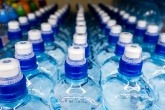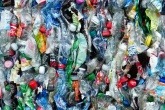UK Plastics Pact members make progress towards 2025 goals
The UK Plastics Pact has published its first annual report and baseline data, revealing that one billion unnecessary single-use plastic items will be eliminated by the end of 2020, with Pact members over halfway towards all their packaging being recyclable and a third of the way towards using an average of 30 per cent recycled content in their packaging.

Launched in April 2018 by the Waste and Resources Action Programme (WRAP), the UK Plastics Pact is a voluntary agreement to drive the UK towards a circular economy for plastics.
Members, including Sainsbury’s, Tesco, Coca-Cola and Unilever, have committed to achieving four targets by 2025: eliminating problematic or unnecessary single-use plastic packaging through redesign, innovation or alternative delivery models; 100 per cent of plastic packaging to be reusable, recyclable or compostable; 70 per cent of plastic packaging effectively recycled or composted; and a 30 per cent average recycled content across all plastic packaging.
With regard to the first target – to eliminate problematic or unnecessary single-use packaging – eight items have been identified as unnecessary or problematic (plastic cutlery, plastic plates and bowls, plastic straws, cotton buds with plastic stems, plastic drinks stirrers, household polystyrene packaging, oxo-degradable plastics and PVC packaging) and a further 19 items are currently under investigation.
Of the eight identified items, 1.1 billion units were sold in 2018 and will be eliminated by the end of 2020.
The report also reveals that members have made significant progress towards target two, which aims for 100 per cent of packaging to be reusable, recyclable or compostable by 2025, as 65 per cent of plastic packaging placed on the market by Pact members is now recyclable. Examples of progress include Waitrose’s refill scheme at its Oxford ‘Unpacked’ store and Sprite’s switch from green to clear bottles.
Major supermarkets and retailers have also taken action on non-recyclable black plastic, with Morrisons and Co-op removing black plastic from all of their own-brand food and drink packaging
As for the third target, to achieve a national recycling rate of 70 per cent for plastic packaging, the report reveals that the national recycling rate for plastic packaging in the UK was 44 per cent in 2018. With communications key to driving behaviour change, the report highlights that the public are seeking information about what can be recycled, as 2018 saw the Recycle Now website increase traffic by 80 per cent from the previous year. All supermarket members have now signed up to the On-Pack Recycling Label (OPRL) scheme and brands such as Pepsi, Evian and Innocent Drinks have enhanced their labelling to improve the clarity of recyclability.
Significant investments have been made in building UK recycling capacity, with Viridor set to open its £65-million Avonmouth plastic recycling plant in 2020 and Biffa’s £27-million reprocessing plant due to open in January.
According to the report, members are a third of the way to achieving target four of a 30 per cent average recycled content across all plastic packaging – in 2018, the average amount of recycled content was 10 per cent across all Pact members’ plastic packaging, saving more than 90,000 tonnes of oil in virgin plastic production.
Actions taken by Pact members include Highland Spring’s eco bottle range, which is made from 100 per cent recycled PET, and Dove’s move to 100 per cent recycled plastic bottles.
Marcus Gover, CEO of WRAP, said: “The way we make, use and dispose of plastic is transforming, and I am proud of the progress that the Pact has made so far. But there is no magic wand – we’re unpicking a highly complex and well-established system and making sure that we don’t simply displace the environmental cost elsewhere. Retaining the valuable role plastic packaging plays, especially in preventing food waste, is crucial. We can’t gamble with the climate in our desire to tackle plastic pollution.
“Our Pact members have shown that they’re committed to this challenge and our new report demonstrates the breadth of action so far on tackling plastic waste. These aren’t token gestures – changes like these require a huge amount of investment and innovation. It shows our members are working collaboratively towards the same goal.
“Moving forward we face significant challenges, particularly around films and flexible packaging, increasing recycling, and development of re-use and refill models. These will be our top priorities as we work urgently towards a world where plastic is valued and doesn’t pollute the environment.”
You can read the annual report on the WRAP website.








